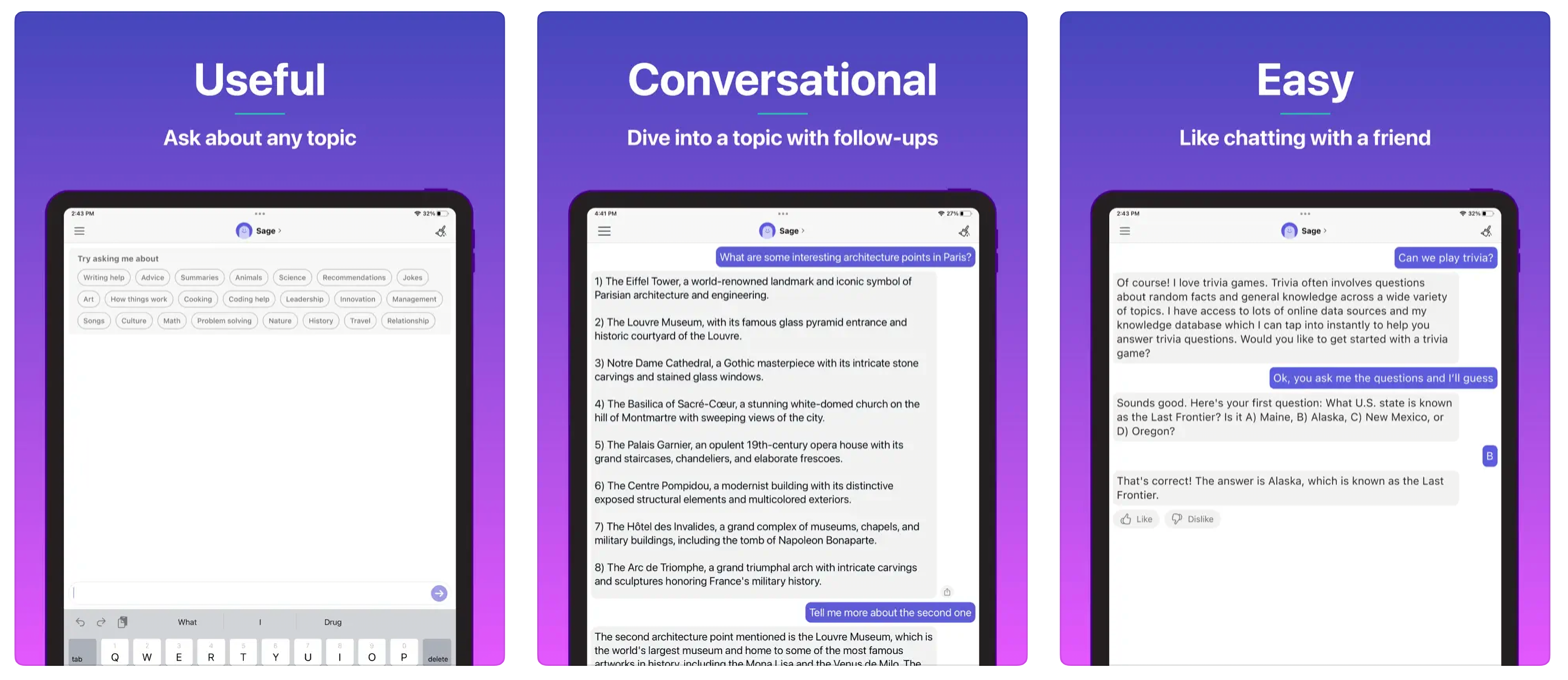Signaling its interest in text-generating AI systems like ChatGPT, Quora this week launched a platform called Poe that lets people ask questions, get instant answers and have a back-and-forth dialogue with AI chatbots.
Short for “Platform for Open Exploration,” Poe — which is invite-only and currently only available on iOS — is “designed to be a place where people can easily interact with a number of different AI agents,” a Quora spokesperson told TechCrunch via text message.
“We have learned a lot about building consumer internet products over the last 12 years building and operating Quora. And we are specifically experienced in serving people who are looking for knowledge,” the spokesperson said. “We believe much of what we’ve learned can be applied to this new domain where people are interfacing with large language models.”
Poe, then, isn’t an attempt to build a ChatGPT-like AI model from scratch. ChatGPT — which has an aptitude for answering questions on topics ranging from poetry to coding — has been the subject of controversy for its ability to sometimes give answers that sound convincing but aren’t factually true. Earlier this month, Q&A coding site Stack Overflow temporarily banned users from sharing content generated by ChatGPT, saying the AI made it too easy for users to generate responses and flood the site with dubious answers.
Quora might’ve found itself in hot water if, for instance, it trained a chatbot on its platform’s vast collection of crowdsourced questions and answers. Users might’ve taken issue with their content being used that way — particularly given that some AI systems have been shown to regurgitate parts of the data on which they were trained (e.g. code). Some parties have protested against generative art systems like Stable Diffusion and DALL-E 2 and code-generating systems such as GitHub’s Copilot, which they see as stealing and profiting from their work.
To wit, Microsoft, GitHub and OpenAI are being sued in a class action lawsuit that accuses them of violating copyright law by allowing Copilot to regurgitate sections of licensed code without providing credit. And on the art community portal ArtStation, which earlier this year began allowing AI-generated art on its platform, members began widely protesting by placing “No AI Art” images in their portfolios.

Image Credits: Quora
At launch, Poe provides access to several text-generating AI models, including ChatGPT. (OpenAI doesn’t presently offer a public API for ChatGPT; the Quora spokesperson refused to say whether Quora has a partnership with OpenAI for Poe or another form of early access.) Poe’s like a text messaging app, but for AI models — users can chat with the models separately. Within the chat interface, Poe provides a range of different suggestions for conversation topics and use cases, like “writing help,” “cooking,” “problem solving” and “nature.”
Poe ships with only a handful of models at launch, but Quora plans to provide a way for model providers — e.g. companies — to submit their models for inclusion in the near future.
“We think this will be a fun way for people to interact with and explore different language models. Poe is designed to be the best way for someone to get an instant answer to any question they have, using natural conversation,” the spokesperson said. “There is an incredible amount of research and development going into advancing the capabilities of these models, but in order to bring all that value to people around the world, there is a need for good interfaces that are easy to use. We hope we can provide that interface so that as all of this development happens over the years ahead, everyone around the world can share as much as possible in the benefits.”
It’s pretty well-established that AI chatbots, including ChatGPT, can generate biased, racist and otherwise toxic content — not to mention malicious code. Quora’s not taking steps itself to combat this, instead relying on the providers of the models in Poe to moderate and filter the content themselves.
“The model providers have put in a lot of effort to prevent the bots from generating unsafe responses,” the spokesperson said.
The spokesperson was quite clear that Poe isn’t a part of Quora for now — nor will it be in the future necessarily. Quora sees it as a separate, independent project, much like Google’s AI Test Kitchen, it plans to iterate and refine over time.
When asked about the business motivations behind Poe, the spokesperson demurred, saying that it’s early days. But it isn’t tough to conceive how Quora, which makes most of its money through paywalls and advertising, might build premium features into Poe if it grows.
For now, though, Quora says it’s focused on working out scalability, getting feedback from beta testers and addressing issues that come up.
“The whole field is moving very rapidly now and we’re more interested in figuring out what problems we can solve for people with Poe,” the spokesperson said.
Quora launches Poe, a way to talk to AI chatbots like ChatGPT by Kyle Wiggers originally published on TechCrunch
from TechCrunch https://ift.tt/R17AMkZ
via Tech Geeky Hub


No comments:
Post a Comment